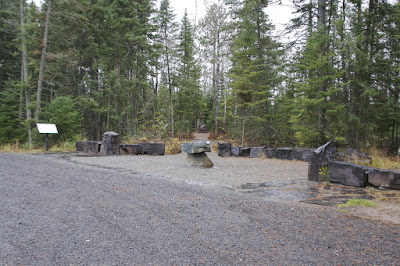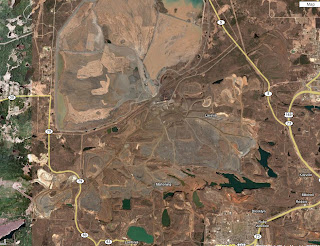We hadn't known it existed. The memorial brought back bitter memories.
It's been five years since Minnesota Senator Paul Wellstone's plane crashed as he flew north to attend the funeral of a friend. The 2002 election was only a week away.
Wellstone, his wife, his daughter, several friends and two pilots died in the crash. The pilot and copilot had made several errors, it was later determined that they were not qualified to fly the plane.
In October of 2002 America's future was balanced on the edge of a precipice. From much of 2000 to 2002 the Senate had been evenly balanced, but before the election a rational Republican had defected and the Senate went Democrat.
Wellstone's death pushed America over the edge. Minnesota and national talk radio hosts used a impolitic memorial service and the Rove playbook to bring GOP Norm Coleman to power.
Minnesota traded a Senator famed for his integrity for one of the most craven politicians ever to spring from Rove's foundry. The GOP had a one seat majority in the Senate. From 2002 through 2006 the GOP controlled the Supreme Court, the House, the Senate and the Presidency.
Everything that was to follow sprang from that poisoned moment.
On May 1, 2003 the US led an invasion of Iraq and by 2004 the name Abu Ghraib had come to symbolize the worst of America. An American era that began with the abolition of slavery and peaked with the 1947 Marshall plan ended in government approved torture and ideologically mandated incompetence.
Which is why the Wellstone Memorial is a genuinely historic site. For the moment it's is not terribly well marked and is little known outside of the area. On Google's maps it's near here -- give or take a kilometer.
When we arrived, on a cold wet Sunday morning, we were alone. During a visit limited by our children's limited patience two other cars arrived. I think the site gets regular visitors.
 |
| From The Iron Range |
It is a very beautiful site, one of the loveliest memorials I've seen anywhere. Certainly it has the sweetest air and finest scents of any I've known.

The Wellstone family and friends are memorialized by ancient stones ...



In 2006 another historic Senate election turned on the the survival of another midwestern Democratic senator, Tim Johnson of South Dakota. This time the balance tipped the other way, Johnson survived his ruptured aneurysm and the Democrats took the Senate.
Now we have no choice but to hope that the worst is over. We can't go back to the days before waterboarding became a national sport, but maybe we'll start a new path.
A new American enlightenment. There's not much choice, really.


